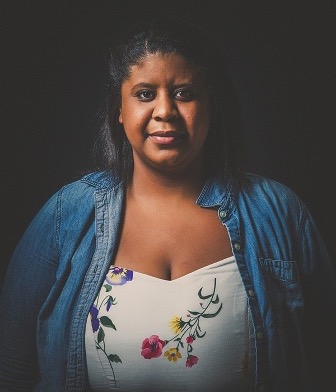
Biography
Rachel Lynett is a queer Afro-Latinx playwright who writes dark comedies about complex, complicated women of color. Her plays include YOU WERE MINE (2019), HE DID IT (2018), CIRCLE UP (2017), WELL-INTENTIONED WHITE PEOPLE (2018), ABORTION ROAD TRIP (2017), OF MICE, GOOD BAD PEOPLE, BREATHE ME IN, REFUGE, YUPPIE CLUSTERF*CK, GIVE ME SHELTER, TAMBIEN, KILL/SHOT, BLACK KITCHEN SINK, and THE BLACK FRIEND. Her work has been developed and produced most notably at the Kennedy Center Page to Stage Festival presented by Theatre Prometheus, the Equity Library theatre, Chicago, the University of Central Florida’s Pegasus PlayLab, as a reading as part of Unicorn Theatre Plays In Progress, the Michigan premiere with Matrix Theatre, the world premiere with Barrington Stage Theatre Company, the Downstage Left Residency with StageLeft, part of Orlando Shakespeare New Play Festival , and receiving honorable mention for the 2017 Kilroys for her play, a workshop production produced by Theatre Prometheus as part of Capital Fringe where it won Best Comedy, and presented by Theatre Prometheus, as a part of the 2017 Kennedy Center Page to Stage Festival. She received her BA in Film, Television and Theatre from the University of Notre Dame and her MFA in Playwriting from the University of Arkansas. Rachel Lynett is also the 2018 Recipient of the Arkansas Arts Council Individual Artist Fellowship, one of the 2020 recipients for the Artist 360 grant, and most recently received the 2021 Yale Drama Series Prize for her work on APOLOGIES TO LORRAINE HANSBERRY (YOU TOO AUGUST WILSON).
Career Highlight
Rachel Lynett received the 2021 Yale Drama Series Prize for her play APOLOGIES TO LORRAINE HANSBERRY (YOU TOO AUGUST WILSON). Her play was hand selected by Pulitzer Prize-winning playwright, Paula Vogel. In addition to being published by Yale University Press, the award comes with a prize of $10,000. While the winning play is typically read on stage, this year’s reading will take place virtually on a date to be announced.
My Apologies to Lorraine Hansberry (You Too August Wilson)
- Genre: Dramedy
- Breakdown:
- (2W Black, 1W Afro-LatinX, 2M Black) Author’s Note: There is absolutely no reason Jules, Yael, or Lorenzo cannot be played by a trans actor.
- Synopsis:
- Set in the fictional world of a post-second Civil War, this play explores an all-Black state called Bronx Bay that is established in order to protect “Blackness.” As Jules’ new partner, Yael, moves into town, community members argue whether Yael, who is Dominican, can stay. Questions of safety and protection surround both Jules and Yael as the utopia of Bronx Bay debates where the line is when it comes to defining who is Black and who gets left out in the process. The play restarts in the Second Act, and also includes historical facts about Black history that we were not always taught in school, including ideas of sexuality and sexual freedom, and the direct addressing of the audience. With a humorous twist, this play allows the audience to open up and vulnerably identify with the characters and the actors.
- Development/Production History:
- 2020: Reading – Orlando Shakespeare Festival
- 2021: Reading – Magic Theater, SF
- Play Link:
- Photos from production:
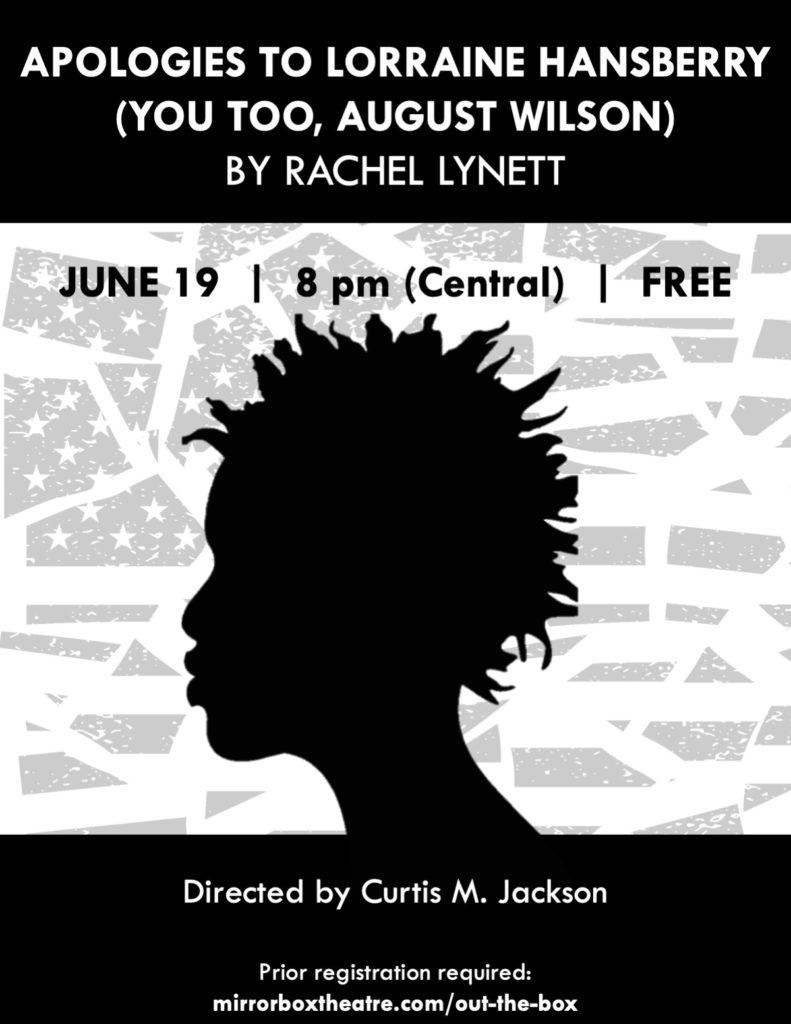
Abortion Road Trip
- Genre: Dramedy
- Breakdown:
- 3W Any Race, 2W Non-White
- Synopsis:
- Set in modern day, Lexa, a 25-year old woman that hires a cab to take her to New Mexico to receive an abortion. She is joined by her half-sister Minnie and the driver who reveal how their lives are intertwined with abortion, as well. Lexa struggles with telling her partner, Seth, and also struggles with her best friend Quinn (who is also Minnie’s girlfriend) having a differing opinion on abortion than she and Minnie do. The female characters tell heartbreaking stories of abortion, discussions of rape, alcoholism, and differing opinions of abortion. Through humor, the play also allows the audience to open up to the story and connect with the characters’ journeys.
- Development/Production History:
- 2017: Received a workshop production produced by Theatre Prometheus as part of Capital Fringe, where it won Best Comedy.
- 2017: Presented by Theatre Prometheus, as a part of the 2017 Kennedy Center Page to Stage Festival.
- Photos from production:
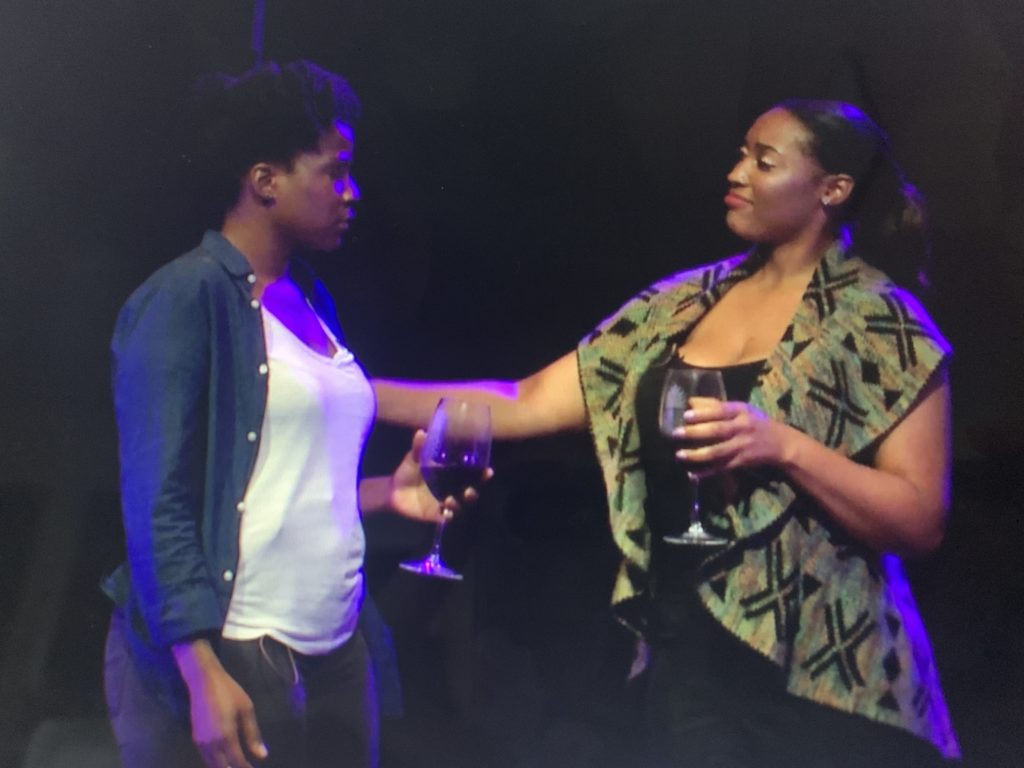
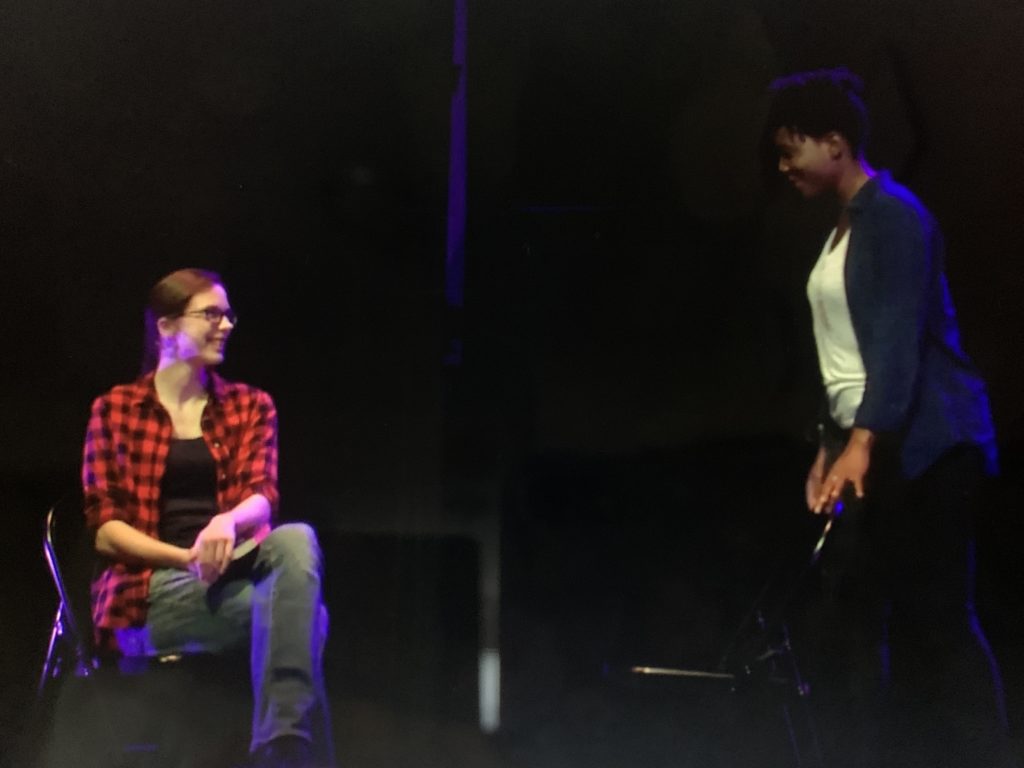
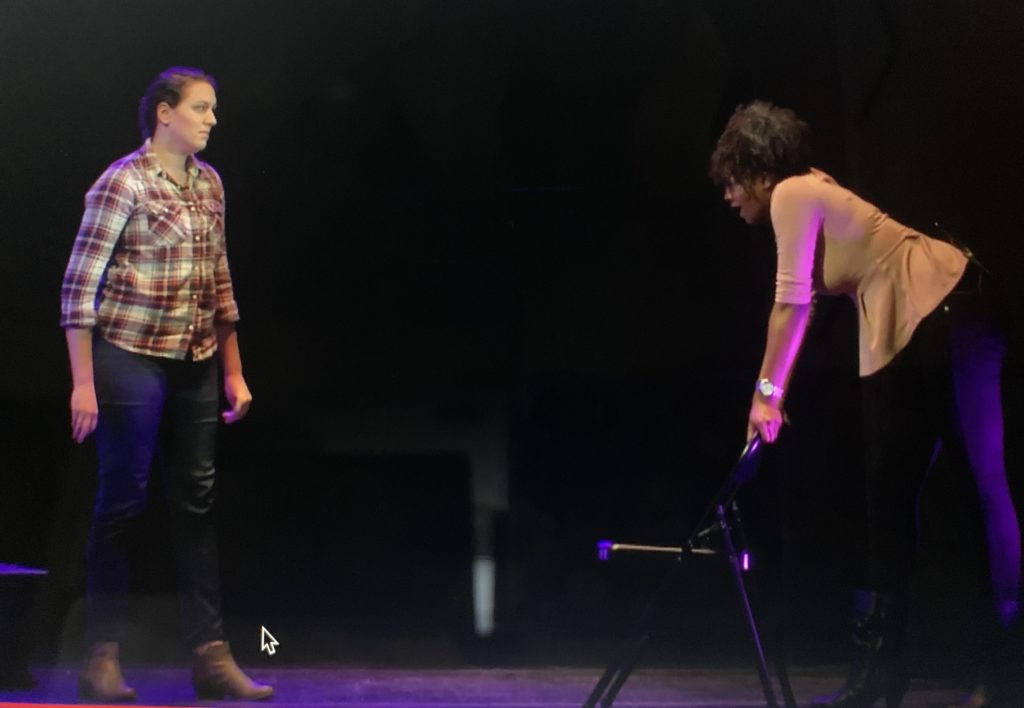
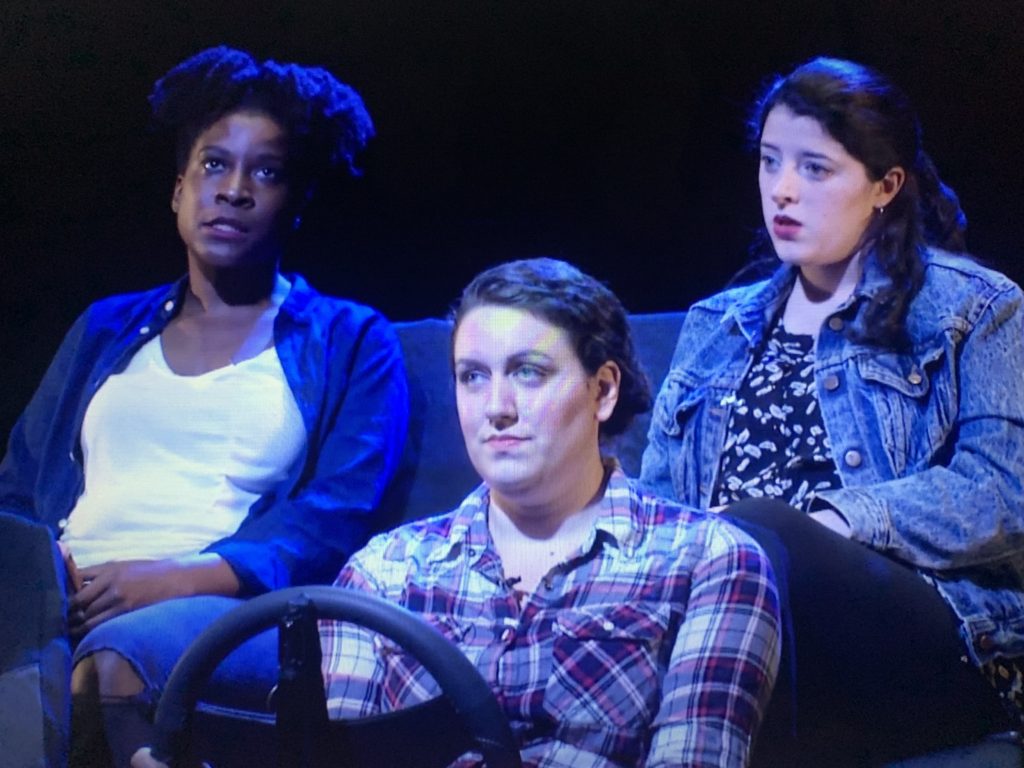
- Plays
- Abortion Road Trip (2017)
- Well-Intentioned White People (2018)
- Good Bad People (2018)
- Refuge (2018)
- He Did It (2018)
- You Were Mine (2019)
- Here Be Dragons (2019)
- Last Night (2020)
- Apologies to Lorraine Hansberry (You too August Wilson) (2020)
- Bibliography
- Ferme, Antonio. “Rachel Lynett Wins 2021 Yale Drama Series Prize (EXCLUSIVE).” Variety, Variety, 9 Apr. 2021, variety.com/2021/artisans/news/rachel-lynett-2021-yale-drama-series-prize-paula-vogel-1234947145/amp/?__twitter_impression=true&fbclid=IwAR1tfKvjWxY_BT7TNSJhQHK4ZIzpsC9uIVaUPQWv-QA3ENizl5b7dJmtVOI.
- Lynett, Rachel. About – Rachel Lynett, rachellynett.com/.
- Stephanie Smittle On April 15, et al. “Arkansas Playwright Rachel Lynett Wins 2021 Yale Drama Prize.” Arkansas Times, 20 Apr. 2021, arktimes.com/entertainment/2021/04/15/arkansas-playwright-rachel-lynett-wins-2021-yale-drama-prize.
- Yoder, K. (2017). WashPost: ‘feel-good’ abortion play offsets crazy ‘anti-abortion activists’. National Right to Life News. https://www.nationalrighttolifenews.org/2017/07/washpost-feel-good-abortion-play-offsets-crazy-anti-abortion-activists/
- Web Resources
- Interview with Playwright: https://www.youtube.com/watch?v=4hGT96YFAz0 (Meeting the Playwright, Interview with Rachel Lynett, 2020)
- Full Play: https://www.youtube.com/watch?v=ALm1D1kuaL0&t=82s (Abortion Road Trip Presented by Theatre Prometheus, 2017)
- https://rachellynett.com/ (Rachel Lynett’s Website)
- https://newplayexchange.org/users/2611/rachel-lynett (Rachel Lynett’s Author Page on the New Play Exchange)
Reflection on Contribution to Anti-Racist Theatre
In Rachel Lynett’s Artist Statement, she states that she writes “plays about complicated, complex women of color. These women are neither saints or villains; they’re eternally both. These women are intelligent, blistered, and, most importantly, real.” Lynett writes her plays about what it means to be a woman of color, as well as the struggles and problems that women of color face in our society. In her play Apologies to Lorraine Hansberry (You Too August Wilson), Lynett highlights the importance of race being non-monolithic. She writes that there cannot be strict definitions of a race, in this case Blackness, because everyone’s idea of Blackness is different. Lynett also calls for many of the actors in these plays to be non-white and queer. In her play, Abortion Road Trip, Lexa and Minnie are written to be played by actors who are non-white. Abortion is disproportionately higher in low socioeconomic areas, and women in these areas are Black women and other women of color. In calling for actors that are non-white, Lynett is advocating for racial equity in the casting and production of her plays. Many of Lynett’s works are creating opportunities in the theatre industry for theater artists of color and members of the LGBTQ+ community.
Faith Harris; Psychology Major, Musical Theatre Minor; Graduates May 2021